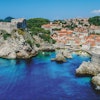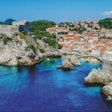The Hague, Netherlands, is not the preferred destination for world leaders accused of crimes. But event planners would have more favorable reviews of International Criminal Court’s home.
Following a model seen commonly among second- and third-tier destinations in this country, The Hague combines its destination marketing forces with nearby Rotterdam. Local officials have a simple, yet effective pitch. For those who have been there, done that with Amsterdam, Rotterdam and The Hague make for a more cost-effective—and arguably more authentic—Dutch treat.
“In the events in the industry, speaking as a former event manager myself, the big first-tier cities—we've done them all, many, many times,” says Catherine Kalamidas, account manager at Rotterdam Partners. “I firmly believe part of the added value of the conference should be the delegate experience. It should allow them to see more and new things.”
While still emerging in the conference market, Rotterdam and The Hague have long been places where work gets done. The Hague is the world capital for peace and justice; Rotterdam is the largest port in Europe and one of the most important for the global economy.
Part of the reason the area has a bustle economy if the two destinations work well together. Attendees can experience old-world Netherlands through The Hague’s palaces, museums and architecture. Rotterdam is where the innovative side shines through. The subway connects the two cities that are 17 miles apart.
“We’re the best of both worlds,” says Kalamidas, born in the U.S. but who has lived in Rotterdam for more than 20 years. “It often feels like one big city.”
Later this month, the 39th Annual Crime Stoppers International Conference will take place in Hilton The Hague. One Young World Summit (1,800 participants from 194 countries) and The Union World Conference on Lung Health (4,000 doctors, scientists, politicians and patients) are also in The Hague in October.
In August, The Global Legal Forum Annual Conference used the Peace Palace. Next June, the life sciences community lands via 15 Annual Conference of the Metabolomics Society at the World Forum The Hague.
The Hague is primed for even more. World Forum The Hague reopened in 2017 after a multi-million dollar renovation and the city should have 1,000 new rooms available to attendees by next year, bringing the total to 55,000. As a result, both hold events by themselves or partner.
Rotterdam's present and future is equally bright. Rotterdam Ahoy Conference Center is slated to debut in 2020—but groups are getting in on the action now.
Rotterdam hosted the Dietary Fibre 2018 Congress in June in De Doelen ICC, and will host the European Federation for Food Science Technology in 2019, as well as the International Food and Agribusiness Management Association in 2020. All are important congresses in the agri-food sector.
On the life sciences front, the European Society of Paediatric Infectious Diseases (2.500 delegates) is coming in 2020, as is the congress of the International Consortium for Health Outcomes Measurement (1,500 delegates) in 2019.
Rotterdam is also bidding on the Urban Future Global Conference in 2021 (3,000 delegates)—the Rotterdam Ahoy Convention Center would host—and the 2021 World Library Information Congress, which could bring in more than 4,000 attendees. “We do see a rising demand,” Kalamidas. “We’re getting a lot more attention.”














